Cannabis Addiction Treatment
Roughly 2.5 million adults in England and Wales used marijuana between March 2022 and 2023. Not all of these users will develop an addiction, but there will be many for whom the use of cannabis becomes the most important part of their lives.
Cannabis addiction treatment gives you the tools and support needed to stop using and regain control over your life. When trying to stop feels difficult, it’s important to know that effective recovery options are available.
For some, cannabis use may occur alongside mental health conditions such as anxiety or depression. This is known as a dual diagnosis, and effective care should address both issues together for the best chance of recovery.

Take the First Step Towards Recovery
Steps Together offers personalised support and proven treatments, providing the care, guidance and encouragement you need to move forward with confidence and build a healthier future.
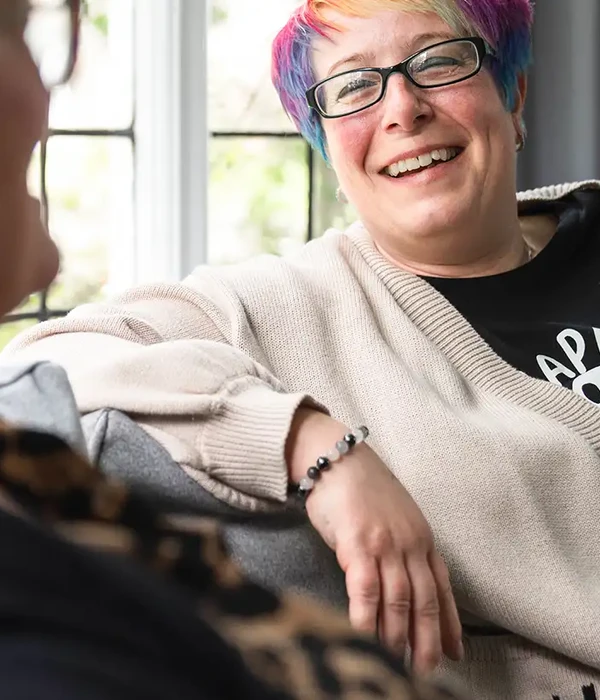
Understanding Cannabis Addiction
Cannabis addiction, also called cannabis use disorder, can affect your mental and physical health. Recognising the signs and understanding how dependence develops is important for anyone who uses marijuana or cares about someone who does.
Understanding what cannabis addiction is can be the first step towards recovery. Being addicted to cannabis isn’t just using marijuana regularly. It is marked by a loss of control over marijuana use, and you’d be unable to stop even if you wanted to.
What Is Cannabis Addiction?
Cannabis addiction happens when you keep using weed or pot even though it causes problems in your life. Over time, your brain gets used to the main active chemical in the cannabis plant, tetrahydrocannabinol (THC). This leads to changes in how your brain’s cannabinoid receptors work.
As you use more marijuana, you can develop cannabis dependency and increase tolerance. This means you might need higher doses to feel the same effects as before. Cannabis is sometimes called a gateway drug because it can make it more likely for some people to try other substances, although not everyone experiences this effect.
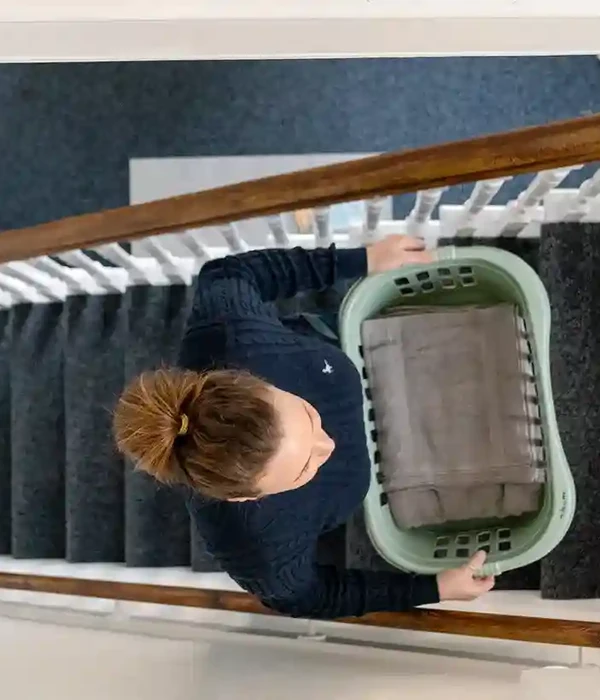
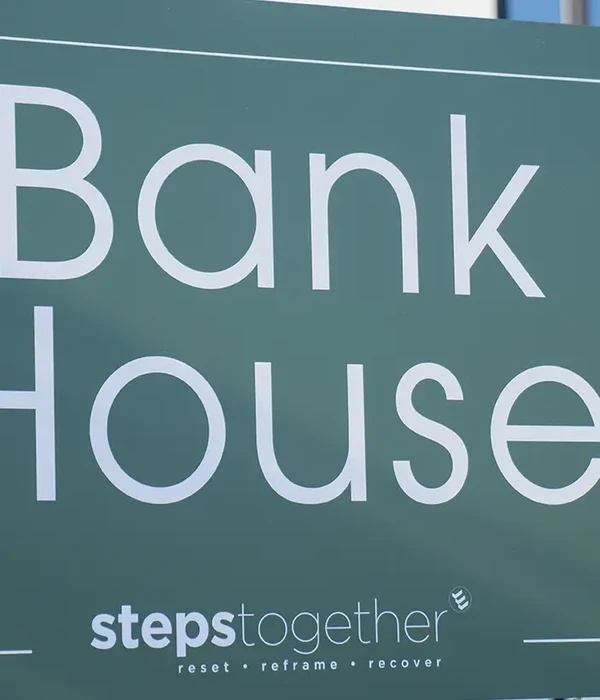
Symptoms of Cannabis Addiction
There are several clear signs of cannabis addiction. You may notice you cannot control how often you use marijuana. Daily routines may change to accommodate weed use. Continuing to use marijuana even though it causes anxiety, memory issues, or trouble thinking is another symptom.
People with a cannabis use disorder often have cravings and find it hard to quit, even when it creates problems with friends, family, or at work. You may also notice withdrawal symptoms like trouble sleeping, feeling irritable, or lacking an appetite when you try to cut back.
Cannabis Addiction Treatment Options
If you are struggling with cannabis addiction, several treatment options can help you regain control. Programmes range from medical detoxand intensive inpatient care to flexible outpatient support, each suited for different needs and levels of addiction.
Developing a Personalised Recovery Plan
Recovery plans must be personalised as not everyone will respond to different approaches in the same way. A personalised recovery plan gives you structure and helps you focus on your unique needs. It outlines your recovery goals and what steps you will take each day.
For many, this includes a mix of therapy, support groups, routines, and activities that keep you on track. Your plan might include physical activities, individual appointments with counsellors, and scheduled group therapy sessions.
Inpatient Cannabis Rehab Programmes
Inpatient rehab offers a structured space where you stay at a treatment centre for a set period. Most inpatient programmes for cannabis addiction last about four weeks, but the length can vary based on your needs. Here, you receive daily therapies, group sessions, and one-to-one counselling focused on building coping skills and preventing relapse.
You are away from triggers while getting continuous care. This environment makes it easier to stay focused on recovery, especially if you have tried to quit before or have a long history of cannabis use. Residential treatment also connects you with peers facing similar challenges, giving added support and encouragement.
Medical Detox for Cannabis
Medical detox is the first step in a cannabis addiction treatment programme for many people seeking help for cannabis use. During this process, you stop using cannabis while under the supervision of medical professionals. Nurses and doctors help guide and monitor your withdrawal, managing symptoms like sleep problems, mood swings, and anxiety.
Unlike detox from substances such as alcohol or opioids, cannabis detox is usually not life-threatening. However, many people feel more comfortable and secure during withdrawal when medical help is available. Some clinics may provide medication to help with intense cravings or emotional distress.
Outpatient Treatment for Cannabis Use
Outpatient cannabis addiction treatment is a good option if your addiction is milder or if you have family or work obligations. You travel to a clinic or service for therapy, but return home afterwards. Sessions often happen a few times a week and might include cognitive behavioural therapy, motivational interviewing, and group counselling.
Outpatient treatment for cannabis addiction sometimes works in combination with online support and fellowship groups like Marijuana Anonymous. Appointments are flexible, making it easier to balance daily responsibilities with professional help.
Services that our multi-speciality addiction rehabilitation centres offer
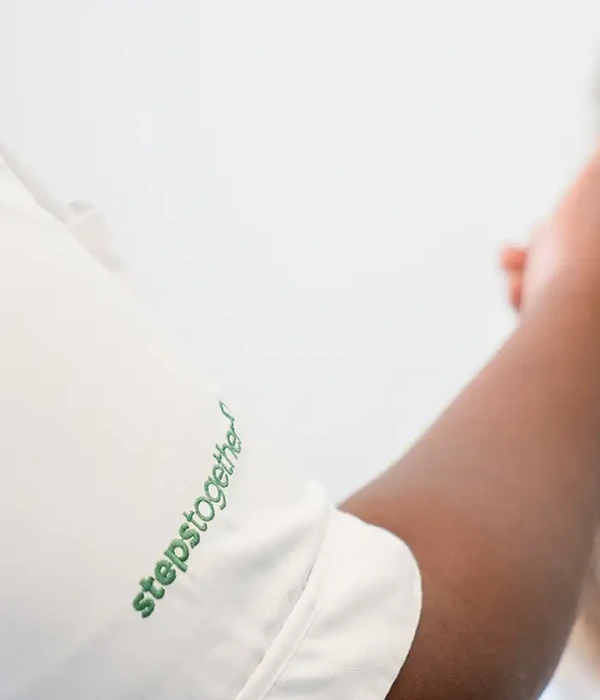
Effects of Cannabis Addiction
While cannabis is often seen as harmless, regular and heavy use can have serious consequences. It may impact your memory, focus, motivation, and even emotional stability, making daily life and responsibilities harder to manage.
Addiction doesn’t happen overnight. It can build gradually as cannabis becomes a way to cope with stress, boredom, or difficult emotions. Recognising how this dependence affects your health is an important step toward getting the right support and starting recovery.
Mental Health Impacts and Physical Dependence
Cannabis use can have major effects on your mental health. You might notice mood swings, anxiety, and problems with memory or concentration. For some, cannabis can make symptoms of existing mental health disorders worse.
Physical dependence on cannabis means you may feel withdrawal symptoms when you try to stop or cut down. These symptoms can include irritability, trouble sleeping, and cravings for the drug. With frequent cannabis use, your body can become used to the drug, which means you may need to take larger doses to achieve the same effect.

Seeking Cannabis Rehab Treatment
In cases of severe dependence, residential treatment will be necessary, but finding a treatment centre can be difficult for many people, as they can either be in denial or they may not know what the right support and treatment for their cannabis dependence is. Many GPs can refer patients to either a drug rehab or other treatment services, such as support groups.
drug rehab often involves a personalised treatment plan, as cannabis addiction can affect people differently and they’ll respond to treatment in unique ways. In treatment, individuals seeking cannabis recovery will participate in both group and individual therapy. Depending on their needs, they may also receive treatment for a co-occurring disorder, and family therapy may also be used to help them repair their relationships with their loved ones.
Overcoming cannabis addiction is not just getting or staying clean; a major part of the recovery process is rebuilding after addiction. The aforementioned family therapy that many treatment centres offer can help people reconnect with their loved ones. Many treatment centres also offer outpatient care and referrals to local resources that can help a person maintain their sobriety outside of a rehab facility’s controlled environment.
Ongoing Marijuana Rehab and Aftercare
To maintain long-term recovery from cannabis addiction, you need effective support and ongoing strategies. This means building healthy habits, managing daily stress, and finding tools that support staying abstinent. Structured aftercare programmes play a key role, offering continued guidance, therapy, and community support to help prevent relapse and strengthen recovery.
Preventing Relapse
Relapse prevention is a crucial aspect of maintaining well-being after completing formal treatment. You learn to recognise triggers, which are people, places, situations, or feelings that make you want to use cannabis again.
By understanding your triggers, you can avoid or manage them before they cause you to fall back into marijuana use. Practical strategies include creating a list of high-risk situations and developing effective coping mechanisms for each trigger.
Healthy Lifestyle Support
Living a healthier life makes it easier to avoid cannabis and manage stress. Physical activities, such as yoga, swimming, or running, help reduce anxiety and improve one’s mood. Yoga and mindfulness also teach relaxation skills that help stop cravings.
Balanced eating and good sleep are essential components of your overall wellness routine. Building new hobbies can fill your time and distract you from triggers. You might also benefit from social support, whether through family, friends, or support groups.
Therapeutic Approaches
Therapy helps you understand the reasons you used cannabis and teaches ways to manage stress and emotions. Cognitive behavioural therapy (CBT) is a common choice because it helps you change negative patterns of thinking and behaviour.
Group therapy lets you share experiences and learn from others facing the same recovery process. Other approaches include mindfulness training, which teaches you to notice thoughts and feelings without acting on them.
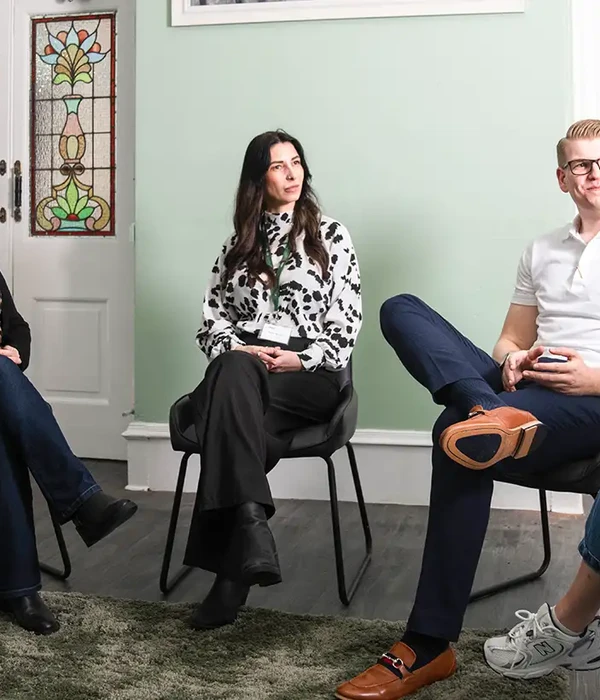
Understand Your Treatment Options for Cannabis Addiction
Cannabis, also known as marijuana, is a drug that has become increasingly decriminalised in recent years. People smoke it, take tablets, or mix it into food. While many people see it as a relatively ‘soft’ or harmless drug, addiction to cannabis can still be dangerous.
Cannabis addiction treatment can be a boon to people who are addicted. With the right support and interventions, people can recover from cannabis dependence. At Steps Together, we’ll help you or your loved one get through treatment and find long-term cannabis addiction recovery.
Frequently Asked Questions
What are the most effective treatments for managing cannabis dependency?
The most effective treatments often include cognitive behavioural therapy, motivational interviewing, and group counselling. These approaches help you understand your triggers and develop healthier habits. Structured rehab programmes can also offer daily routines, one-to-one therapy, and relapse prevention planning for lasting recovery.
What strategies are recommended for those struggling to overcome the desire to use cannabis?
If you find it hard to resist cannabis, delaying use and removing triggers from your environment can help. Practising mindfulness, setting specific goals, and seeking professional support are also effective. Regular sessions with a therapist can help you build coping techniques and track your progress.
Can lifestyle changes contribute to the process of quitting cannabis?
Lifestyle changes can make a real difference. Regular exercise, healthy eating, and reliable sleep routines help stabilise your mood and reduce cravings. Engaging in hobbies and maintaining a support network further supports your recovery.
Are there any medications approved for treating cannabis use disorder?
Currently, there are no medications officially approved in the UK to treat cannabis use disorder. Treatment providers focus on therapy and behavioural support. However, doctors might prescribe medication to manage withdrawal symptoms or co-occurring mental health conditions if needed.
How significant is the role of therapy in cannabis addiction recovery?
Psychological therapy is central to cannabis addiction treatment. CBT, in particular, can help you identify and address negative thought patterns and learn new ways to manage stress. Group therapy also provides accountability and the opportunity to share experiences with others. Many addiction treatment services strongly recommend these therapies.
What kind of support networks exist for individuals dealing with cannabis addiction?
Support networks such as local addiction support groups, community mental health services, and family counselling are available. Many people also benefit from rehab programmes and online forums where they can share their struggles and successes. Professional advice and peer support are accessible throughout the UK.





